Product details
Septarian nodules are fascinating geological formations characterized by their distinctive pattern of cracks and fissures filled with mineral deposits. These nodules are found in various locations around the world, including Utah in the United States, Madagascar, and Canada. Each of these regions offers unique insights into the formation and composition of septarian nodules, making them significant subjects of study for geologists and enthusiasts alike.

Utah Septarian Nodules:
Utah is renowned for its abundant and diverse geological formations, including septarian nodules. These nodules are commonly found in sedimentary rocks, particularly in regions with ancient seabeds that have undergone significant geological processes over millions of years.
The septarian nodules of Utah typically consist of a core composed of calcite, aragonite, or gypsum, surrounded by an outer shell of brown calcite and an inner lining of various minerals such as barite, celestite, or quartz. The distinctive cracking pattern, known as septaria, is formed during the process of dehydration and shrinkage of the sedimentary mud that initially encapsulated the nodule. As the mud dries and contracts, it forms fissures, which are later filled in by mineral-rich solutions that seep through the cracks, resulting in the characteristic network of veins and partitions.
These nodules often exhibit striking patterns and colors, ranging from earthy browns and yellows to vibrant oranges and reds, making them prized specimens among collectors and lapidaries. They are commonly used in lapidary work to create polished cabochons, decorative objects, and even jewelry.

In addition to their aesthetic appeal, septarian nodules from Utah provide valuable insights into the geological history of the region, offering clues about ancient environments and depositional processes. Studying the composition and structure of these nodules can help geologists reconstruct past climates, sedimentary environments, and tectonic events that shaped the landscape of Utah millions of years ago.
Madagascar Septarian Nodules:
Madagascar is another significant source of septarian nodules, particularly in regions where sedimentary rocks are prevalent. The island nation’s geological diversity and rich mineral deposits have made it a prime destination for rockhounds and researchers interested in studying these unique formations.
Septarian nodules from Madagascar share many similarities with those from Utah, including their composition and formation processes. However, they often exhibit distinct variations in color, texture, and mineral content due to differences in geological conditions and environmental factors.
One notable characteristic of septarian nodules from Madagascar is the presence of vibrant blue calcite crystals, which contrast beautifully with the surrounding matrix of brown calcite and other minerals. These blue calcite formations are highly sought after by collectors and are prized for their rarity and aesthetic appeal.

Like their counterparts in Utah, septarian nodules from Madagascar provide valuable clues about the island’s geological history and past environmental conditions. By studying the mineral composition, structure, and distribution of these nodules, researchers can gain insights into the ancient marine environments, sedimentary processes, and tectonic activities that shaped Madagascar’s landscape over millions of years.
Canadian Septarian Nodules:
Canada is also home to septarian nodules, although they are less commonly encountered compared to other regions such as Utah and Madagascar. These nodules are typically found in sedimentary rocks in various parts of the country, including Alberta, Saskatchewan, and Manitoba.
Canadian septarian nodules often exhibit a similar structure and composition to those found in other regions, with a core of calcite, aragonite, or other minerals surrounded by an outer shell of calcite and an inner lining of secondary minerals. However, they may display unique features and coloration depending on the specific geological conditions of their formation.
One notable locality for septarian nodules in Canada is the Red River Formation in Manitoba, where these formations are found in association with shale, sandstone, and other sedimentary rocks. The nodules from this region often contain a diverse array of minerals, including quartz, barite, and pyrite, adding to their geological interest and aesthetic appeal.
While septarian nodules from Canada may not be as well-known as those from other regions, they nonetheless contribute valuable insights to our understanding of the country’s geological history and ancient environments. By studying these nodules, researchers can reconstruct past sedimentary processes, depositional environments, and geological events that have shaped Canada’s landscape over millions of years.
Septarian carvings encompass a diverse array of artistic creations that showcase the unique beauty and natural patterns found within septarian nodules. From polished spheres and hearts to intricately carved bowls and fetish animals, septarian carvings offer a captivating glimpse into the artistry and craftsmanship of lapidaries and artisans. Let’s explore the fascinating world of septarian carvings and the various forms they take.
Septarian spheres are among the most popular and sought-after carvings, prized for their smooth surfaces and mesmerizing patterns. Crafted from high-quality septarian nodules, these spheres are meticulously shaped and polished to showcase the intricate network of cracks, veins, and mineral deposits within.

The spherical shape accentuates the natural patterns of the septarian nodule, creating a mesmerizing display of colors and textures that capture the imagination. Whether displayed as standalone pieces or used as meditation tools, septarian spheres evoke a sense of harmony and balance, inviting contemplation and reflection.
Hearts:
Septarian hearts are another beloved form of septarian carving, symbolizing love, compassion, and emotional healing. Crafted with precision and care, these heart-shaped carvings accentuate the natural beauty of the septarian nodule, with its swirling patterns and vibrant colors.

Septarian hearts are often used as decorative accents, heartfelt gifts, or talismans for emotional healing and self-love. Whether displayed on a shelf or carried in a pocket, septarian hearts serve as reminders of the beauty and resilience found within the human heart.
Bowls:
Septarian bowls are functional works of art that combine the natural beauty of septarian nodules with practical utility. Carved from large septarian nodules, these bowls feature smooth interiors and rough exteriors, showcasing the contrast between polished and raw surfaces. Septarian bowls are commonly used as decorative centerpieces, serving dishes, or vessels for holding crystals, potpourri, or other small treasures. Each bowl is a unique creation, with its own distinct patterns and colors, making it a striking addition to any home or office decor.
Fetish Animals:
Septarian fetish animals are whimsical carvings that capture the spirit and essence of various animal forms. Crafted with intricate detailing and precision, these carvings transform septarian nodules into miniature works of art, each with its own personality and charm.

From bears and wolves to dolphins and owls, septarian fetish animals come in a variety of shapes and sizes, reflecting the diversity of the natural world. These carvings are often used as totems, amulets, or decorative accents, symbolizing strength, wisdom, and connection to nature.
Other Forms:
In addition to spheres, hearts, bowls, and fetish animals, septarian carvings come in a wide range of other forms, including pyramids, obelisks, figurines, and more. Each carving showcases the unique beauty and natural patterns of the septarian nodule, highlighting the skill and creativity of the artisan.

Septarian carvings are prized by collectors, enthusiasts, and spiritual seekers alike for their aesthetic appeal, symbolic significance, and metaphysical properties. Whether displayed as decorative accents, used as meditation tools, or worn as jewelry, septarian carvings continue to captivate and inspire all who behold them.
Prehistoric 101 (Learn about fossils, minerals, and meteorites)
Septarian: Learn more
Discovering Prehistoric Life and Fossils

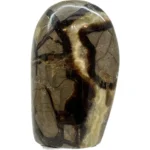
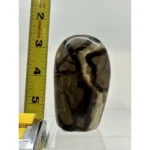
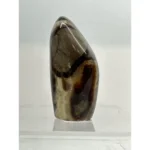
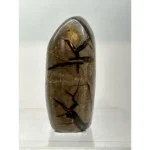




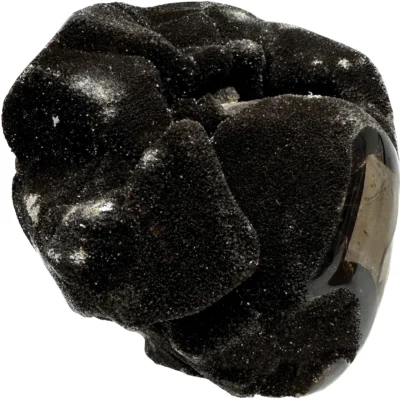
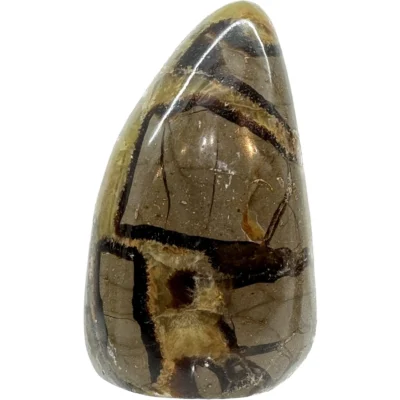
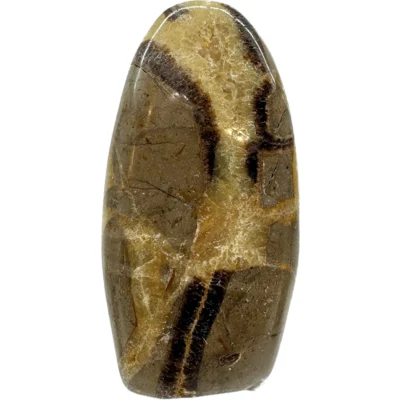
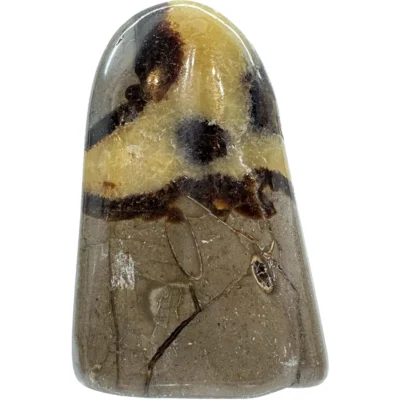
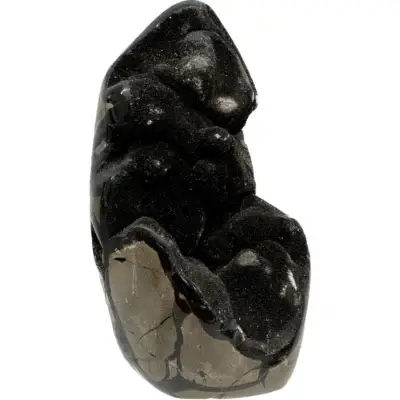
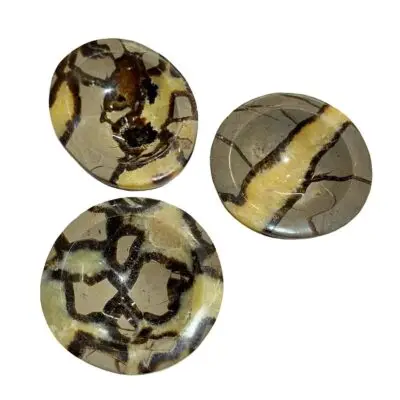
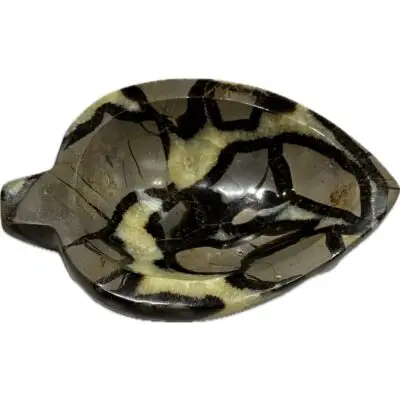
There are no reviews yet.